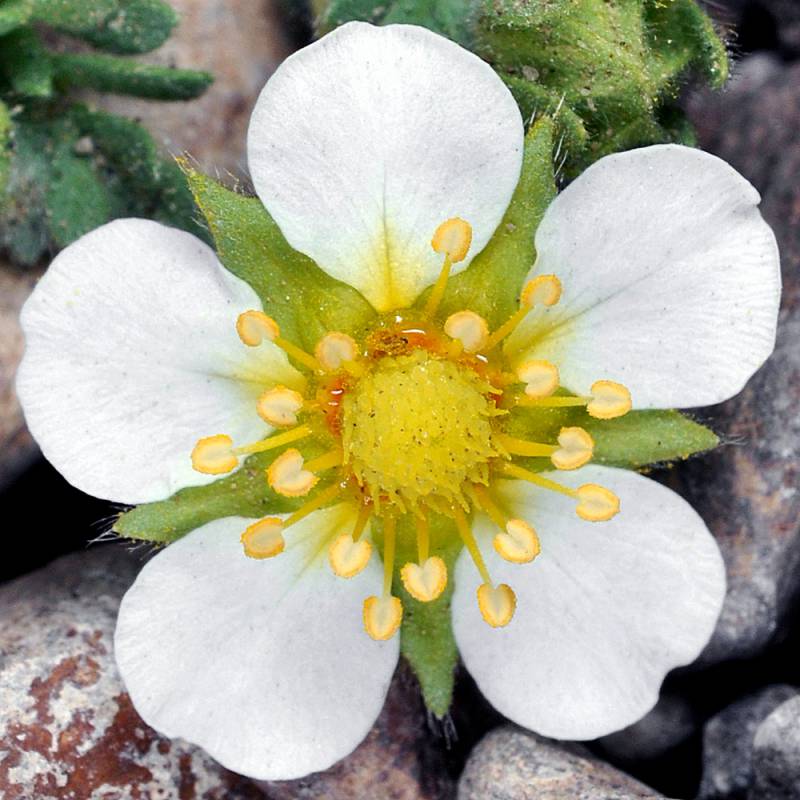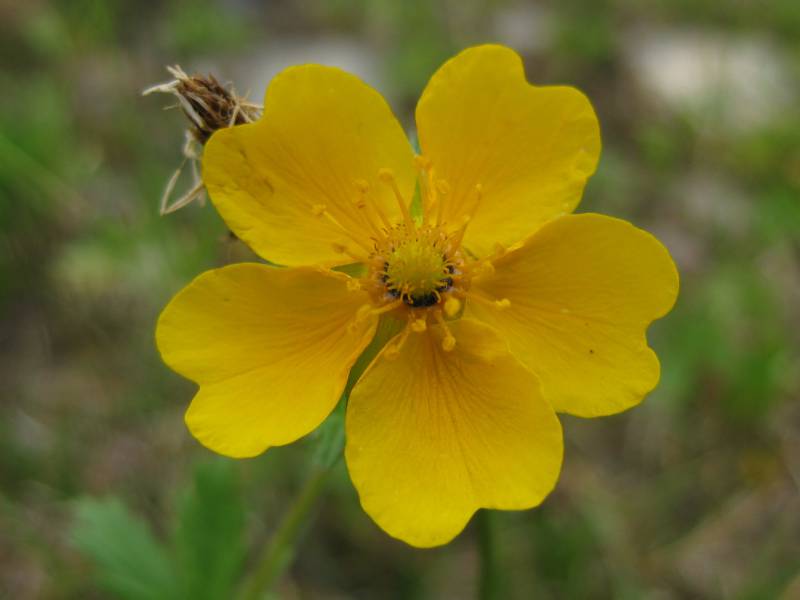Potentilla newberryi
Potentilla villosa
Newberry's cinquefoil
northern cinquefoil, villous cinquefoil
Leaves ternate, the leaflets somewhat leathery, woolly below, strongly veined, obovate, 1-2 cm. long, coarsely dentate, the teeth rounded;
cauline leaves 2, sub-sessile, only slightly reduced.
Inflorescence open, 2-5 flowered;
calyx 7-11 mm. long, the 5 lobes triangular, 3.5-4.5 mm. long, equal to the alternating, oval-elliptic bracteoles;
petals 5, yellow, obcordate, exceeding the sepals;
stamens 20;
pistils numerous, style sub-terminal, basally thickened and tapered, equal to the achene;
Achene 1 mm. long, smooth.
Potentilla newberryi
Potentilla villosa
Known historically (1898) from the Columbia River Gorge in Washington, now likely extirpated; central Oregon to California, east to northwestern Nevada.
Occurring in the North Cascades, Olympic Mountains, and at Mt. Rainier in Washington; Alaska to Oregon.
- Local floras:
CA,
OR,
WA
- Local Web sites:
CalFlora,
CalPhotos,
Flora NW,
PNW Herbaria
WildflowerSearch
iNaturalist (observations)
USDA Plants Database
- LBJ Wildflower Center
- SEINet
- Plants of the World Online
- Encyclopedia of Life
- Wikipedia
- Google Image Search
- Local floras:
BC,
OR,
WA
- Local Web sites:
Flora NW,
PNW Herbaria
WildflowerSearch
iNaturalist (observations)
USDA Plants Database
- LBJ Wildflower Center
- SEINet
- Plants of the World Online
- Encyclopedia of Life
- Wikipedia
- Google Image Search



